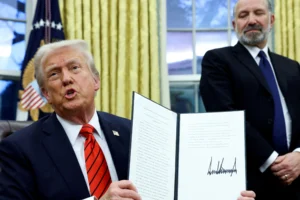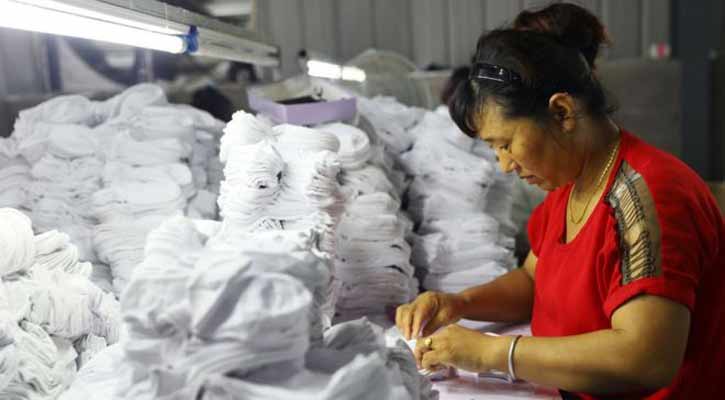Hong Kong pro-democracy activists plan sit-ins at shopping malls on Saturday after a night in which protesters took to the hills to form lantern-carrying human chains, the latest demonstrations in months of unrest in the Chinese-ruled city.
Demonstrators also plan to gather outside the British Consulate on Sunday to demand that China honors a Sino-British Joint Declaration that was signed in 1984, laying out the former British colony’s future after its return to China in 1997.
Protesters came out peacefully in their hundreds across the territory on Friday, singing and chanting on the Mid-Autumn Festival, in contrast to the violence of many previous weekends when police have responded with tear gas, rubber bullets and water cannon.
They have also gathered in malls, with occasional scuffles with flag-carrying China supporters.
The spark for the protests, due to resume on Saturday afternoon, was a now-withdrawn extradition bill and concerns that Beijing is eroding civil liberties, but many young protesters are also angry about sky-high living costs and a lack of job prospects.
The bill would have allowed people to be sent to mainland China for trial in Communist Party-controlled courts, but the protests have now broadened into calls for greater democracy.
Hong Kong returned to China under a “one country, two systems” formula that guarantees freedoms not enjoyed on the mainland – including a much-cherished independent legal system.
China says Hong Kong is now its internal affair. It says it is committed to the “one country, two systems” arrangement and denies meddling in Hong Kong’s affairs.
China is eager to quell the unrest before the 70th anniversary of the founding of the People’s Republic of China on Oct 1. It has accused foreign powers, particularly the United States and Britain, of fomenting the unrest.
Britain says it has a legal responsibility to ensure China abides by its obligations under the 1984 declaration.
“The Joint Declaration is a legally binding treaty between the UK and China that remains as valid today as it was when it was signed and ratified over 30 years ago,” a British Foreign Office spokeswoman said in June.
“As a co-signatory, the UK government will continue to defend our position.”
But there is little London can do to force Beijing’s hand, pinning its hopes on closer trade and investment cooperation with the world’s second-largest economy after Britain leaves the European Union as planned at the end of next month.





















